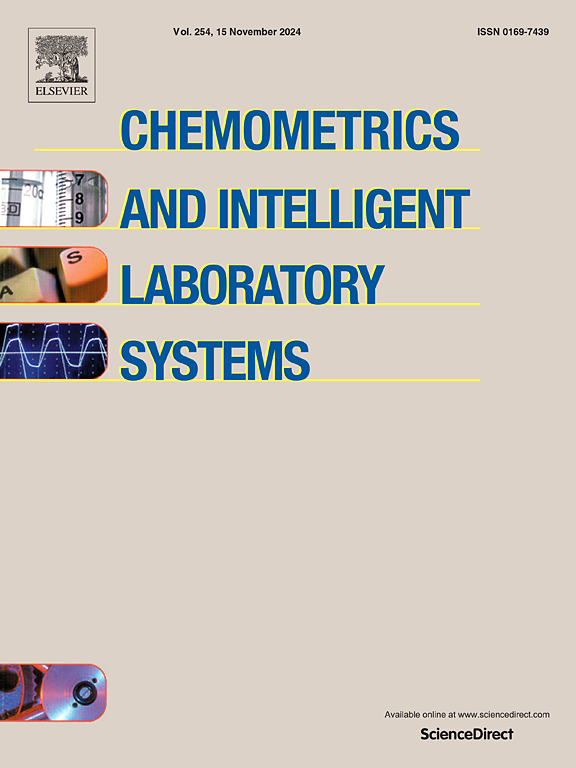Robust soft sensor development based on Dirichlet process mixture of regression model for multimode processes
IF 3.8
2区 化学
Q2 AUTOMATION & CONTROL SYSTEMS
Chemometrics and Intelligent Laboratory Systems
Pub Date : 2025-10-11
DOI:10.1016/j.chemolab.2025.105550
引用次数: 0
Abstract
Industrial processes often exhibit multimode characteristics due to factors like load variations, equipment changes, and feedstock fluctuations. This paper introduces a Dirichlet Process-based Twofold-Robust Mixture Regression Model (DPR2MRM) for multimode processes. As a Bayesian nonparametric model, it automatically determines the number of mixture components from observed data using Dirichlet process mixture techniques, avoiding underfitting and overfitting. The model employs a Student's-t mixture model for input space learning, leveraging its long-tail properties for robust mode identification. For each mode, a regression model is built to capture the relationship between inputs and outputs, incorporating Student's-t noise to ensure robustness against output space outliers. The optimal posteriors of the model parameters are inferenced within a full Bayesian framework, and an analytical posterior predictive distribution is derived. The effectiveness of the DPR2MRM is demonstrated through a numerical example and two industrial applications.
基于Dirichlet过程混合回归模型的多模过程鲁棒软传感器开发
由于负荷变化、设备变化和原料波动等因素,工业过程经常表现出多模式特性。介绍了一种基于Dirichlet过程的多模过程双鲁棒混合回归模型(DPR2MRM)。该模型是一种贝叶斯非参数模型,利用Dirichlet过程混合技术,从观测数据中自动确定混合分量的个数,避免了欠拟合和过拟合。该模型采用Student -t混合模型进行输入空间学习,利用其长尾特性进行鲁棒模式识别。对于每种模式,都建立了一个回归模型来捕捉输入和输出之间的关系,并结合Student's-t噪声来确保对输出空间异常值的鲁棒性。在全贝叶斯框架内推导出模型参数的最优后验,并推导出分析后验预测分布。通过一个数值算例和两个工业应用验证了DPR2MRM的有效性。
本文章由计算机程序翻译,如有差异,请以英文原文为准。
求助全文
约1分钟内获得全文
求助全文
来源期刊
CiteScore
7.50
自引率
7.70%
发文量
169
审稿时长
3.4 months
期刊介绍:
Chemometrics and Intelligent Laboratory Systems publishes original research papers, short communications, reviews, tutorials and Original Software Publications reporting on development of novel statistical, mathematical, or computer techniques in Chemistry and related disciplines.
Chemometrics is the chemical discipline that uses mathematical and statistical methods to design or select optimal procedures and experiments, and to provide maximum chemical information by analysing chemical data.
The journal deals with the following topics:
1) Development of new statistical, mathematical and chemometrical methods for Chemistry and related fields (Environmental Chemistry, Biochemistry, Toxicology, System Biology, -Omics, etc.)
2) Novel applications of chemometrics to all branches of Chemistry and related fields (typical domains of interest are: process data analysis, experimental design, data mining, signal processing, supervised modelling, decision making, robust statistics, mixture analysis, multivariate calibration etc.) Routine applications of established chemometrical techniques will not be considered.
3) Development of new software that provides novel tools or truly advances the use of chemometrical methods.
4) Well characterized data sets to test performance for the new methods and software.
The journal complies with International Committee of Medical Journal Editors'' Uniform requirements for manuscripts.

 求助内容:
求助内容: 应助结果提醒方式:
应助结果提醒方式:


